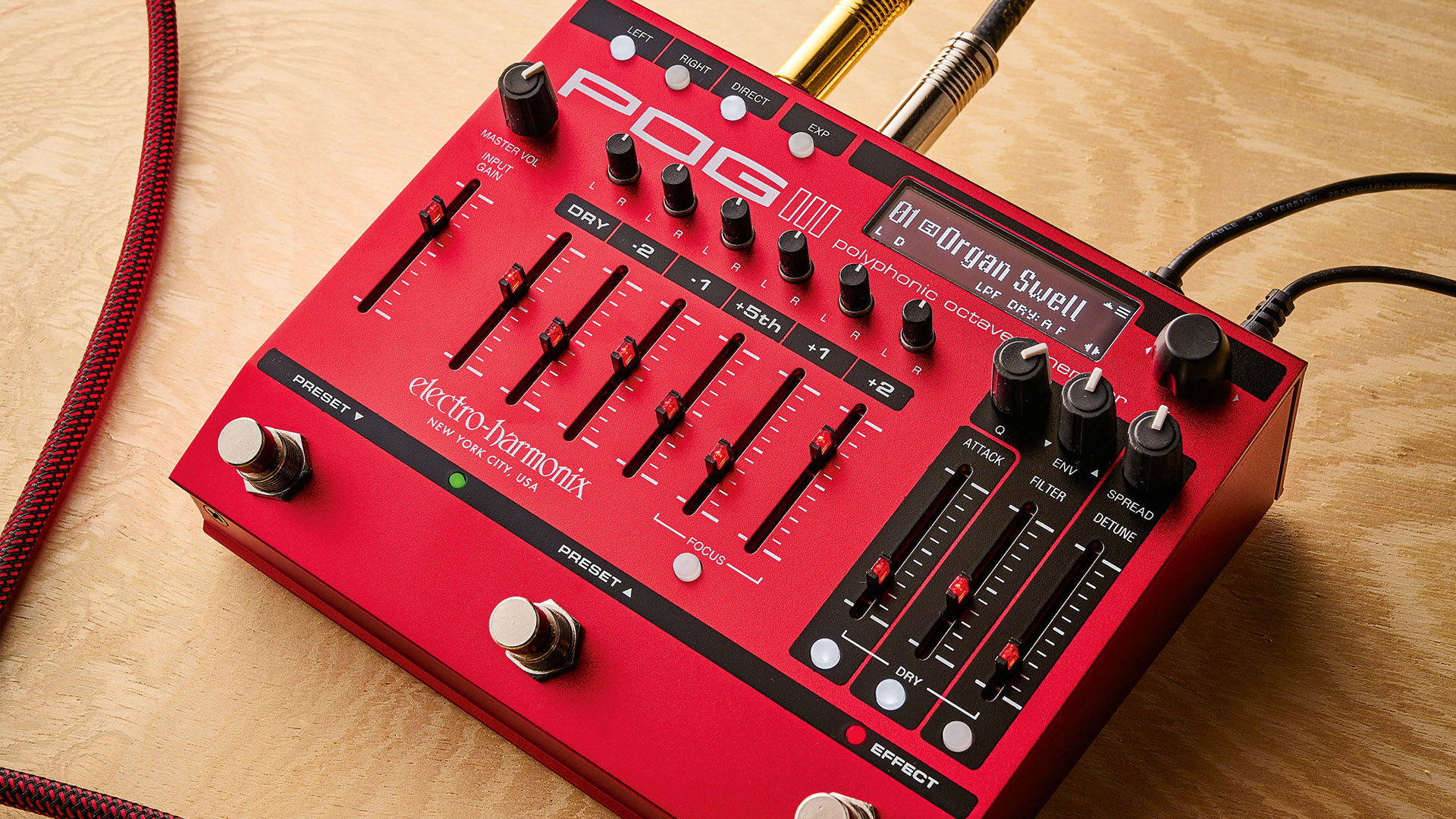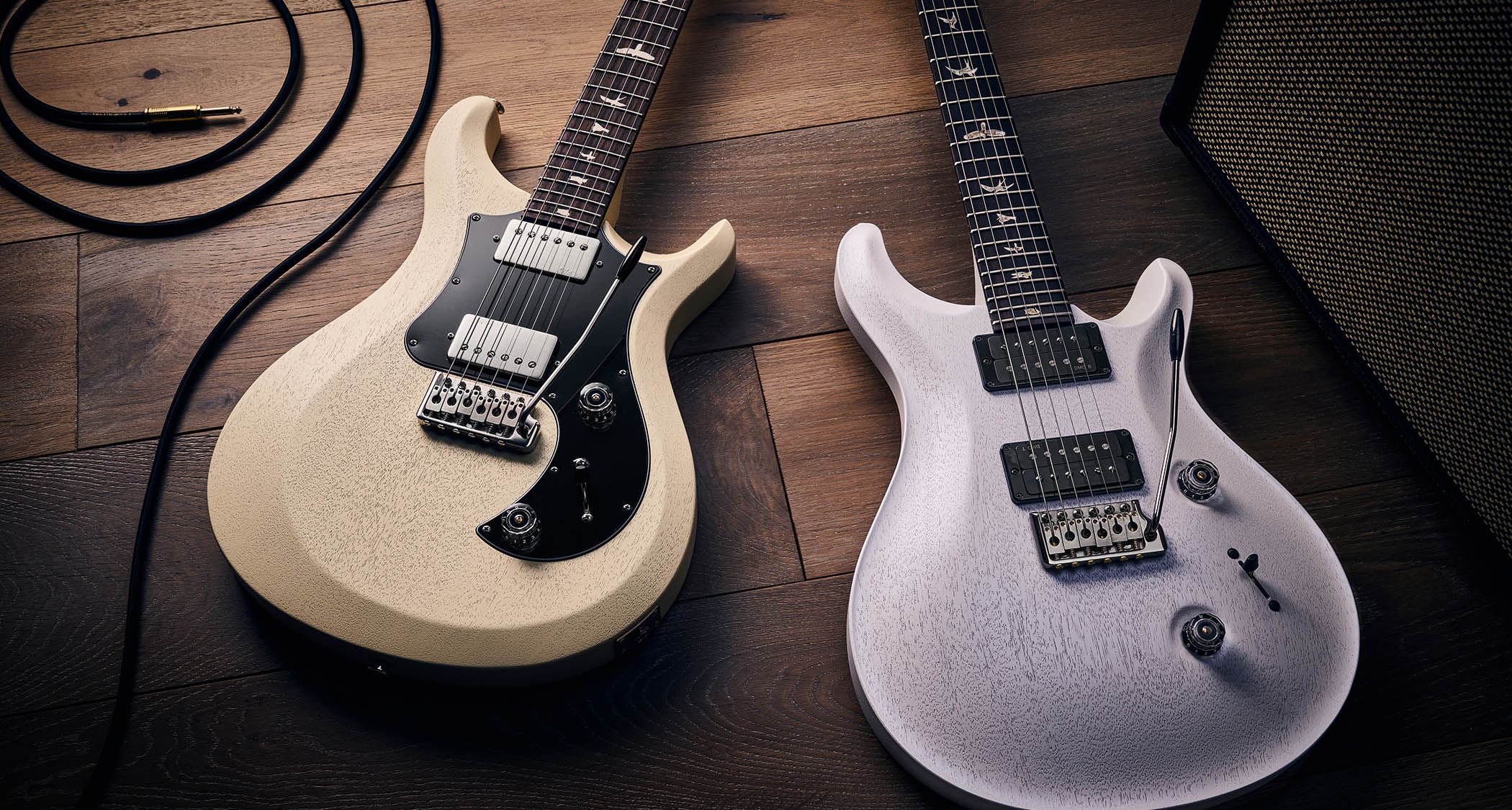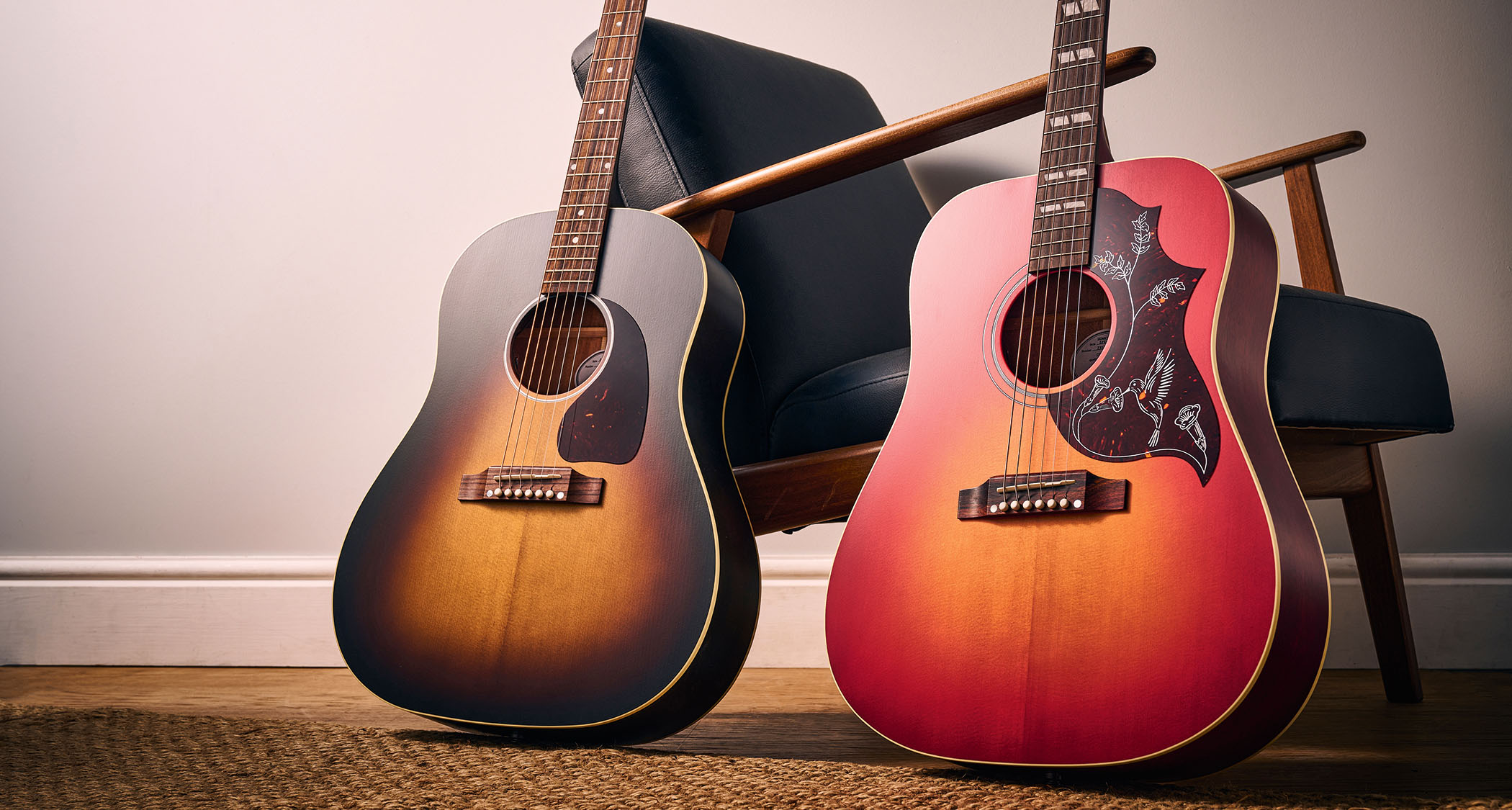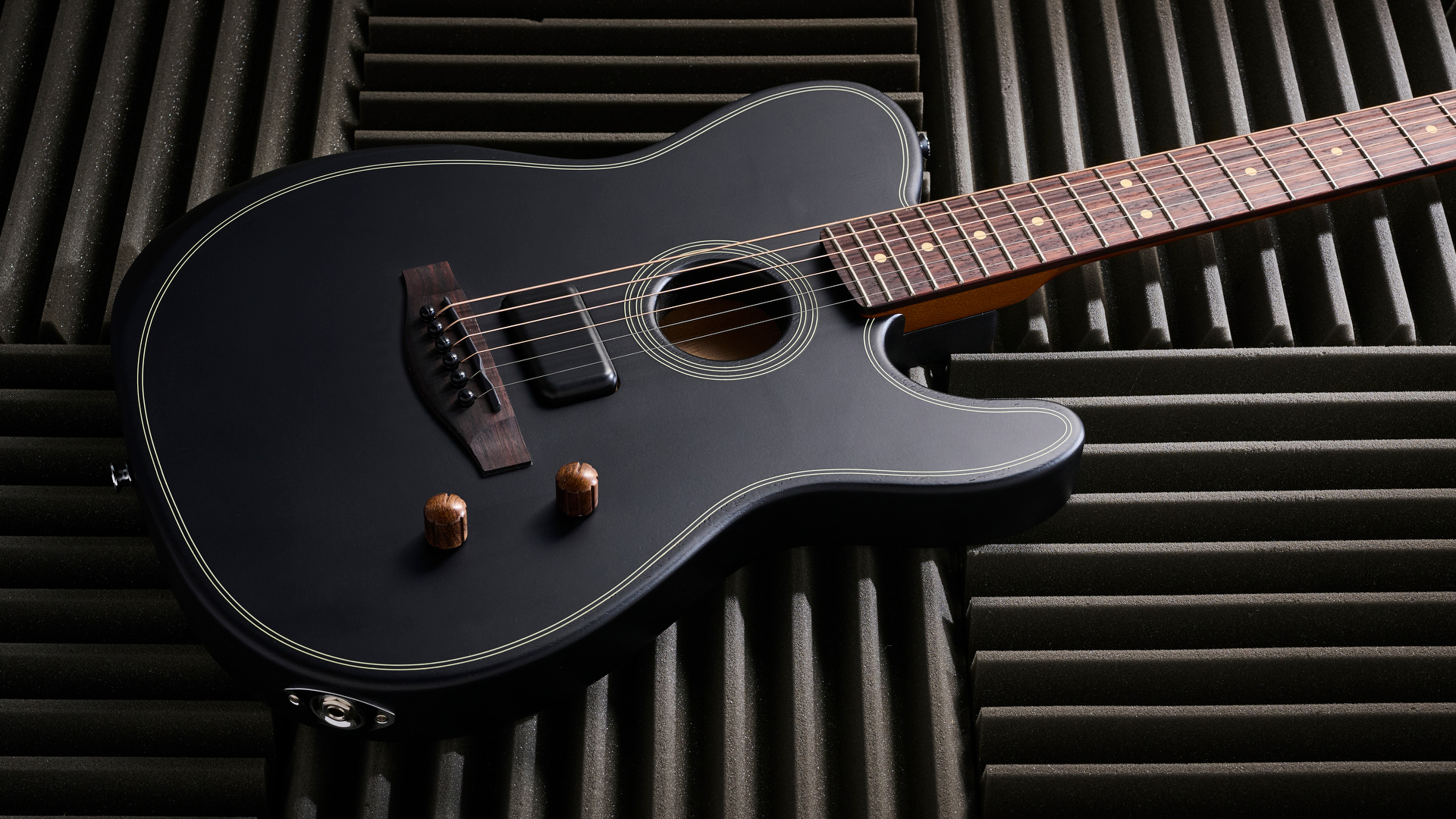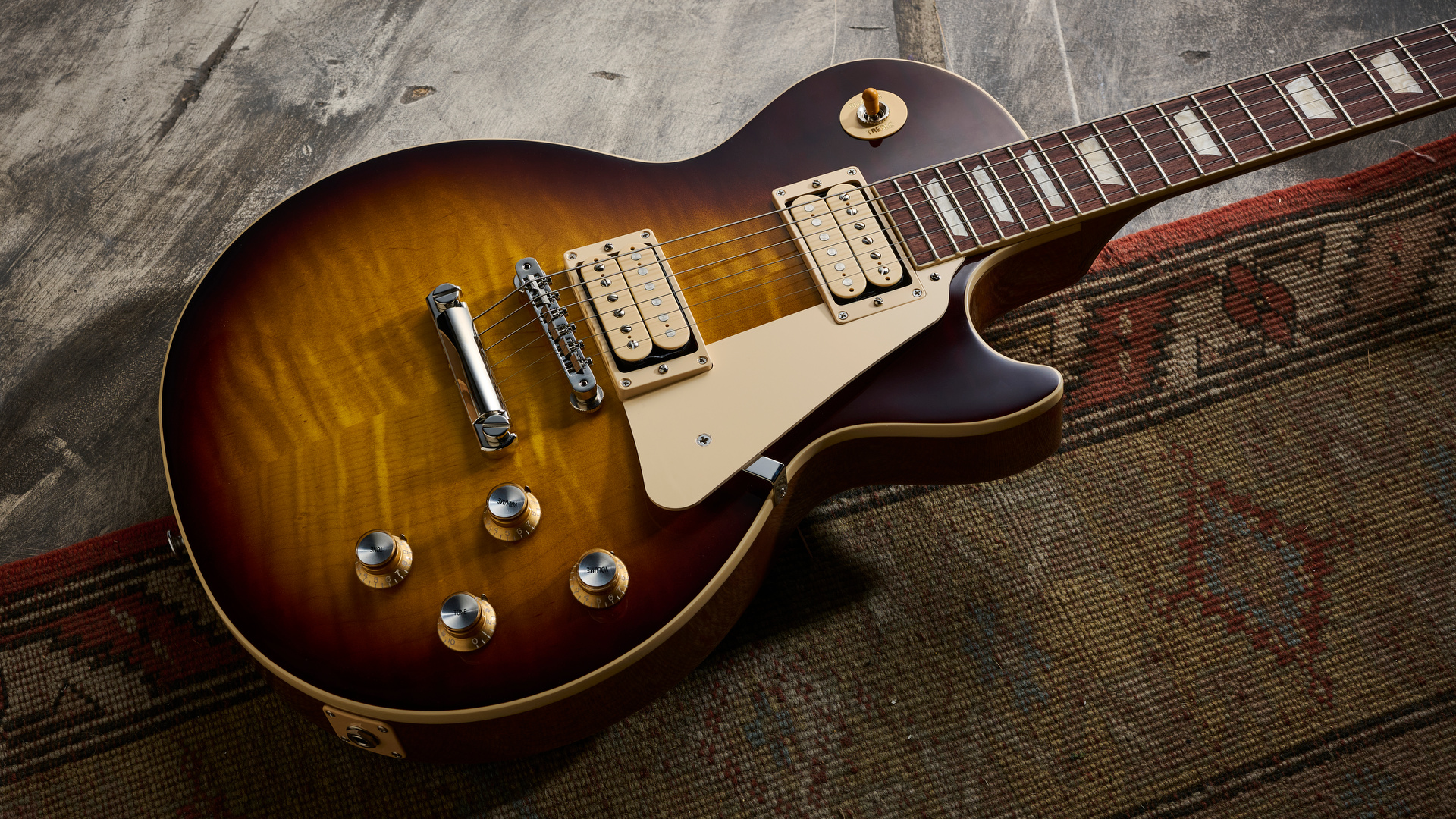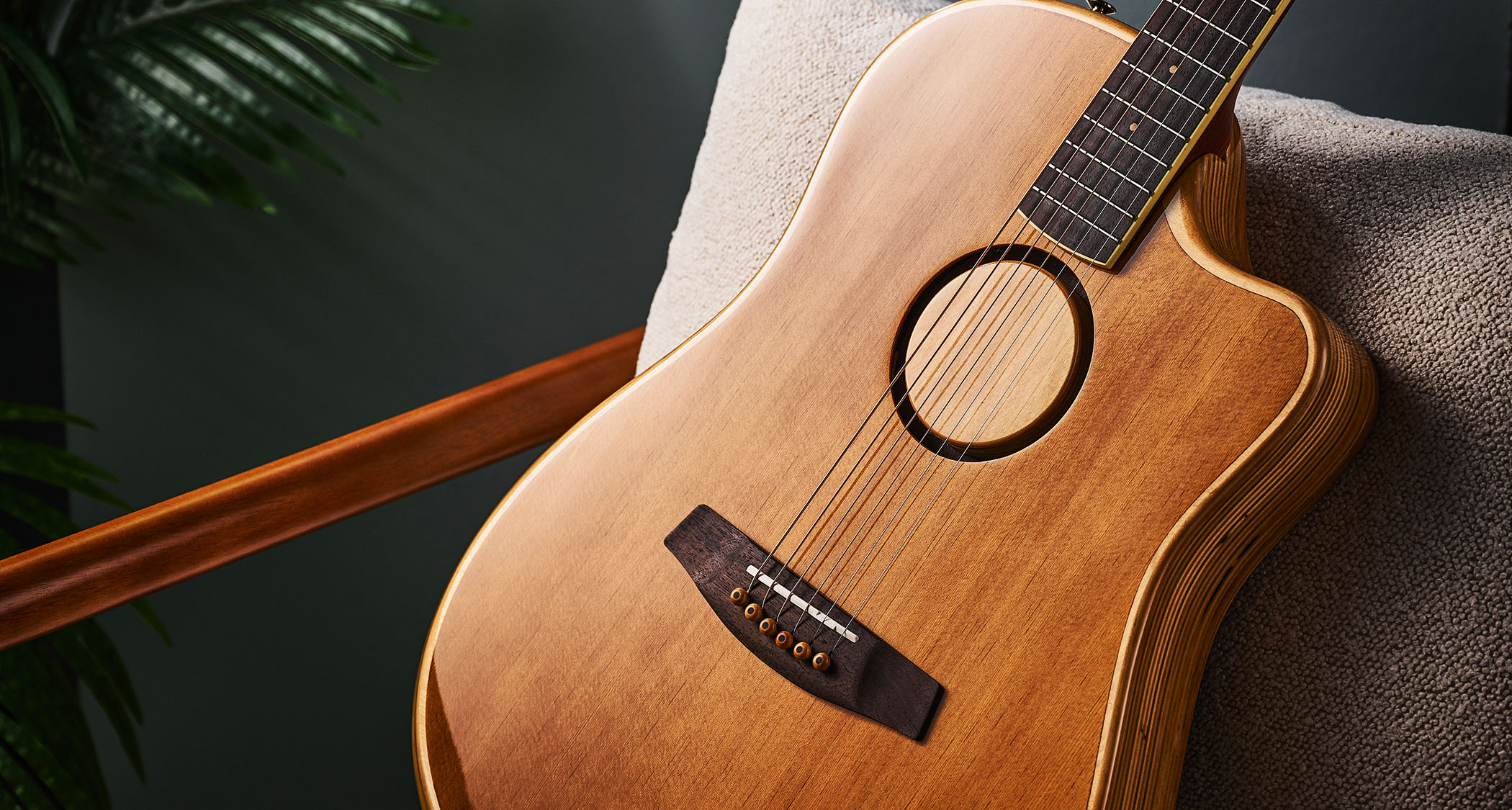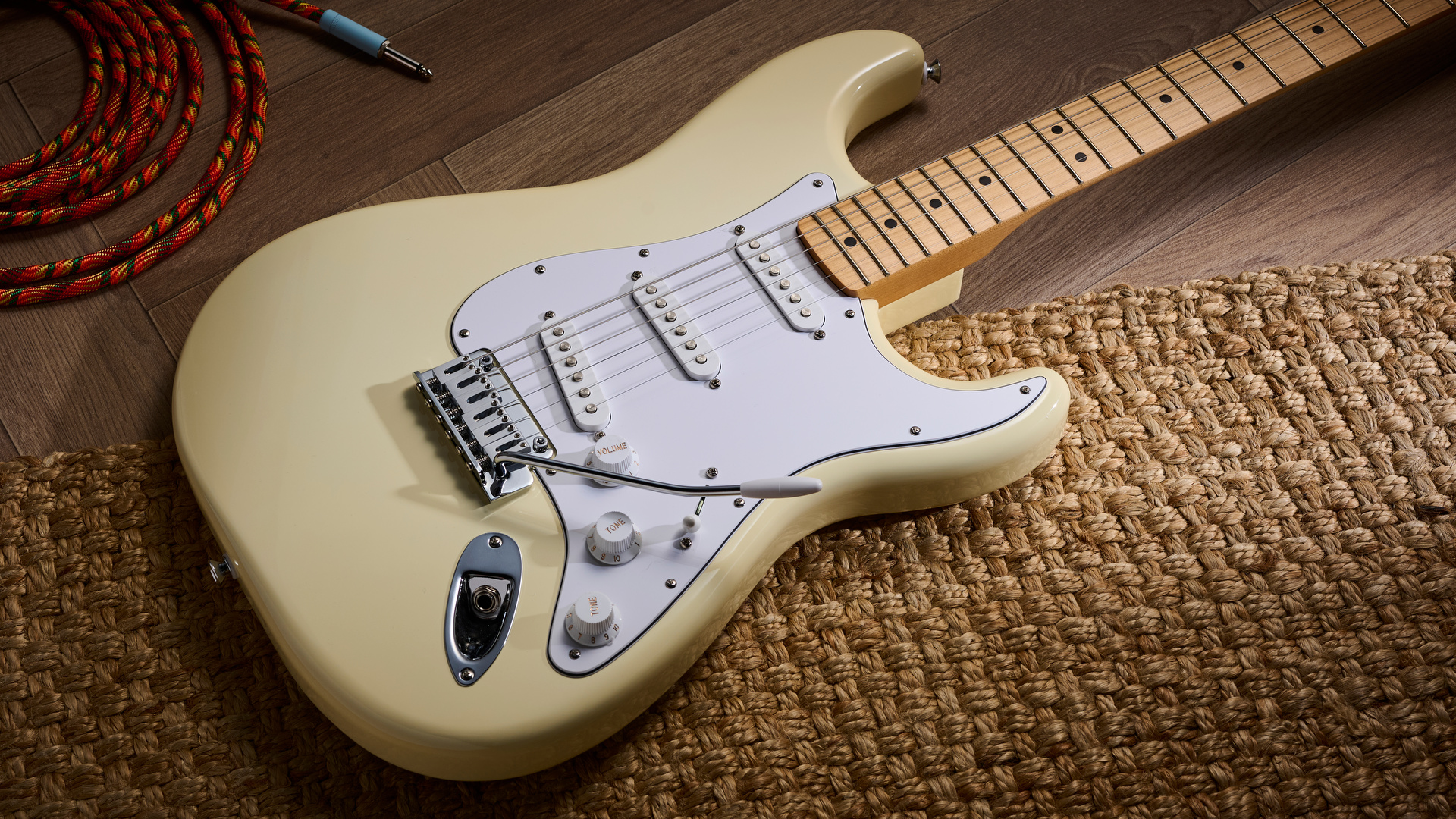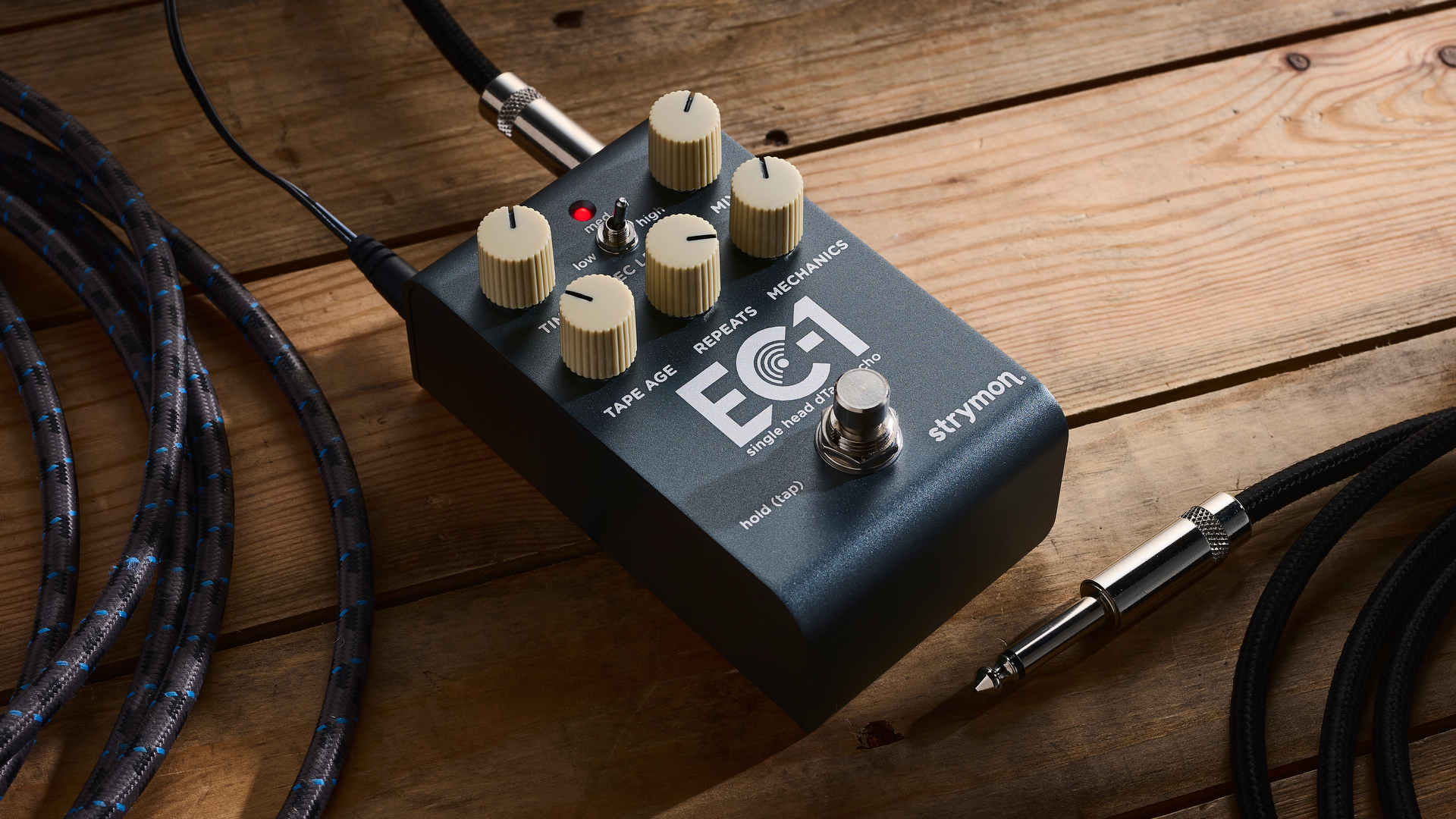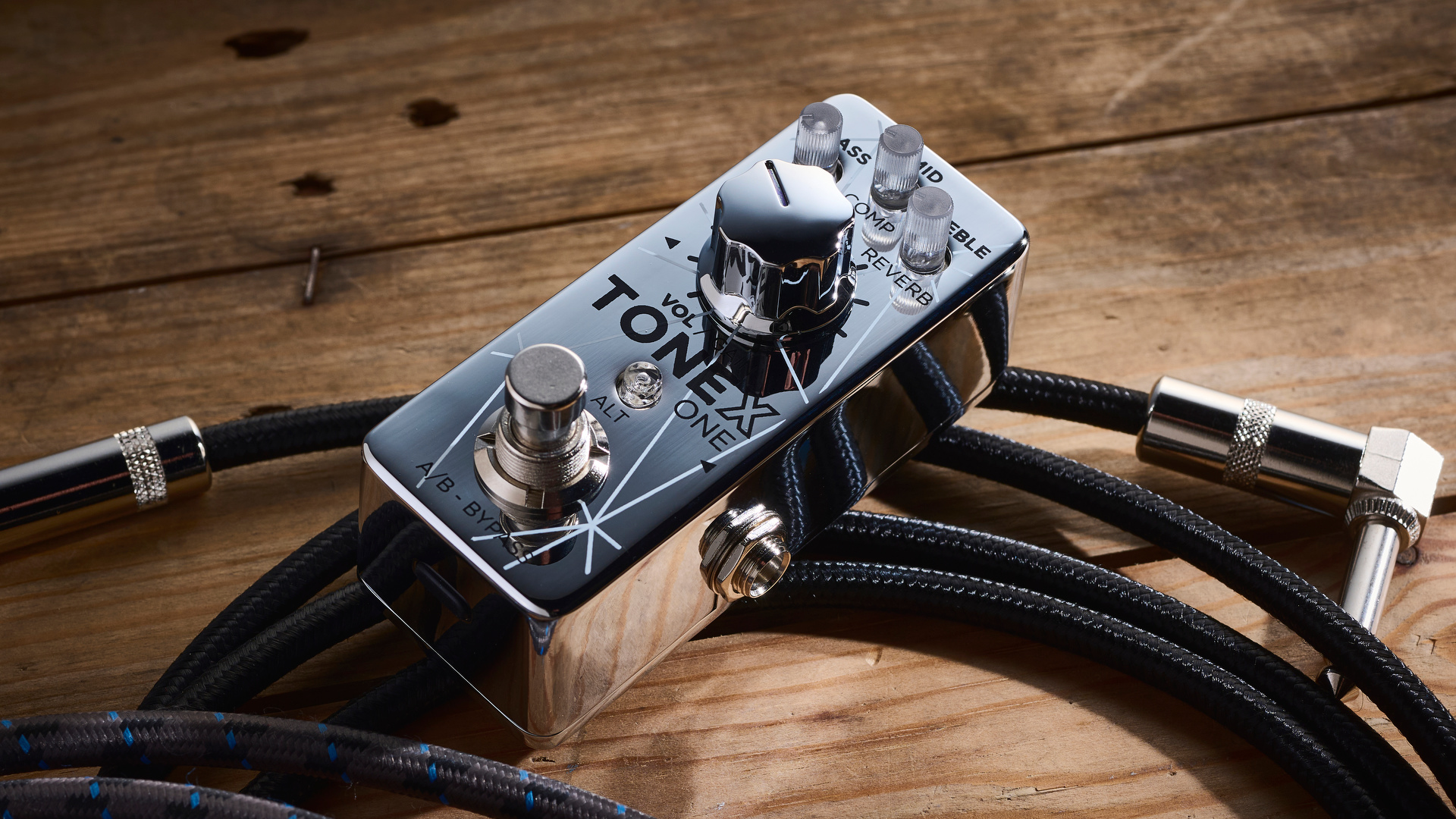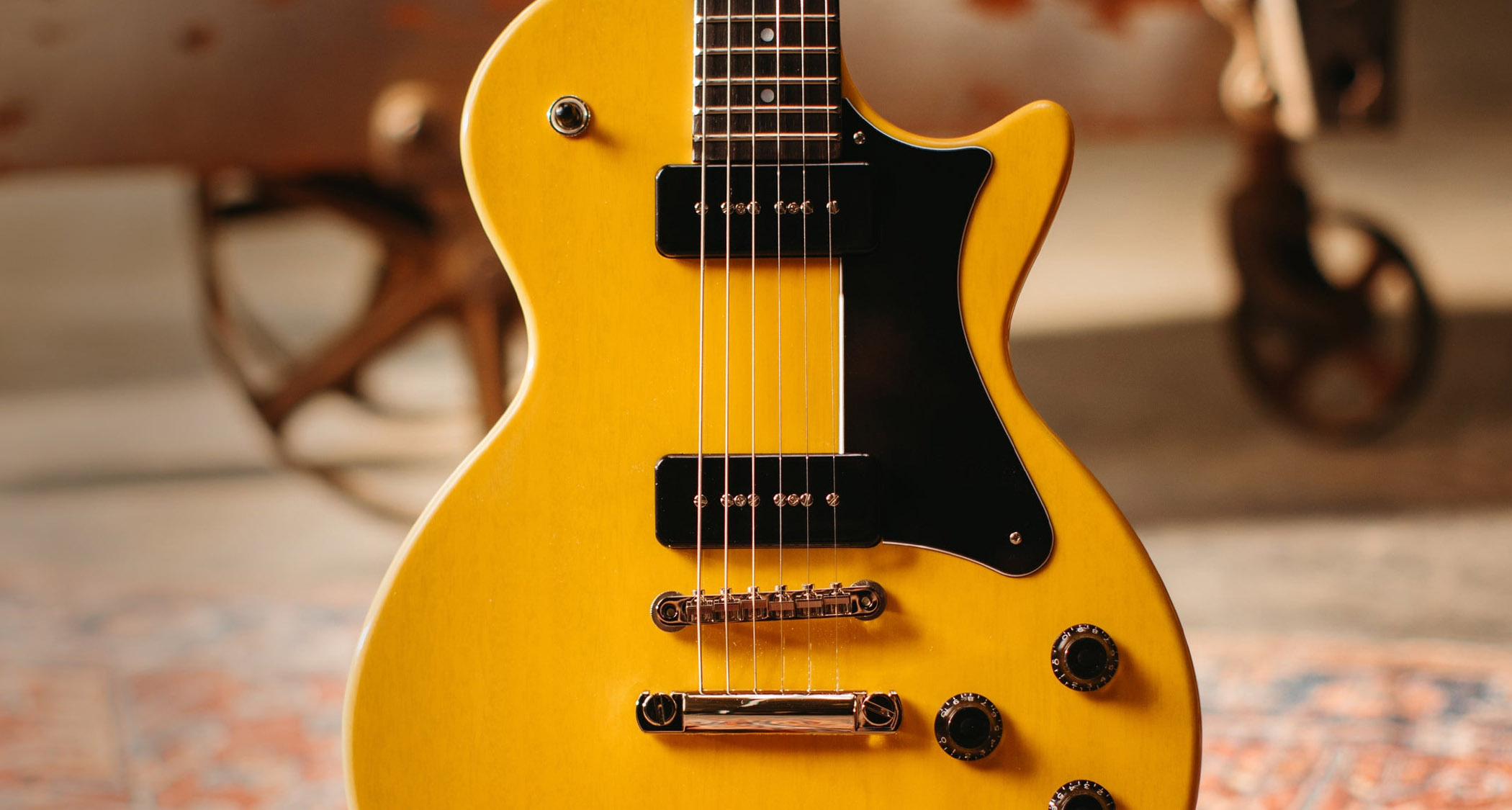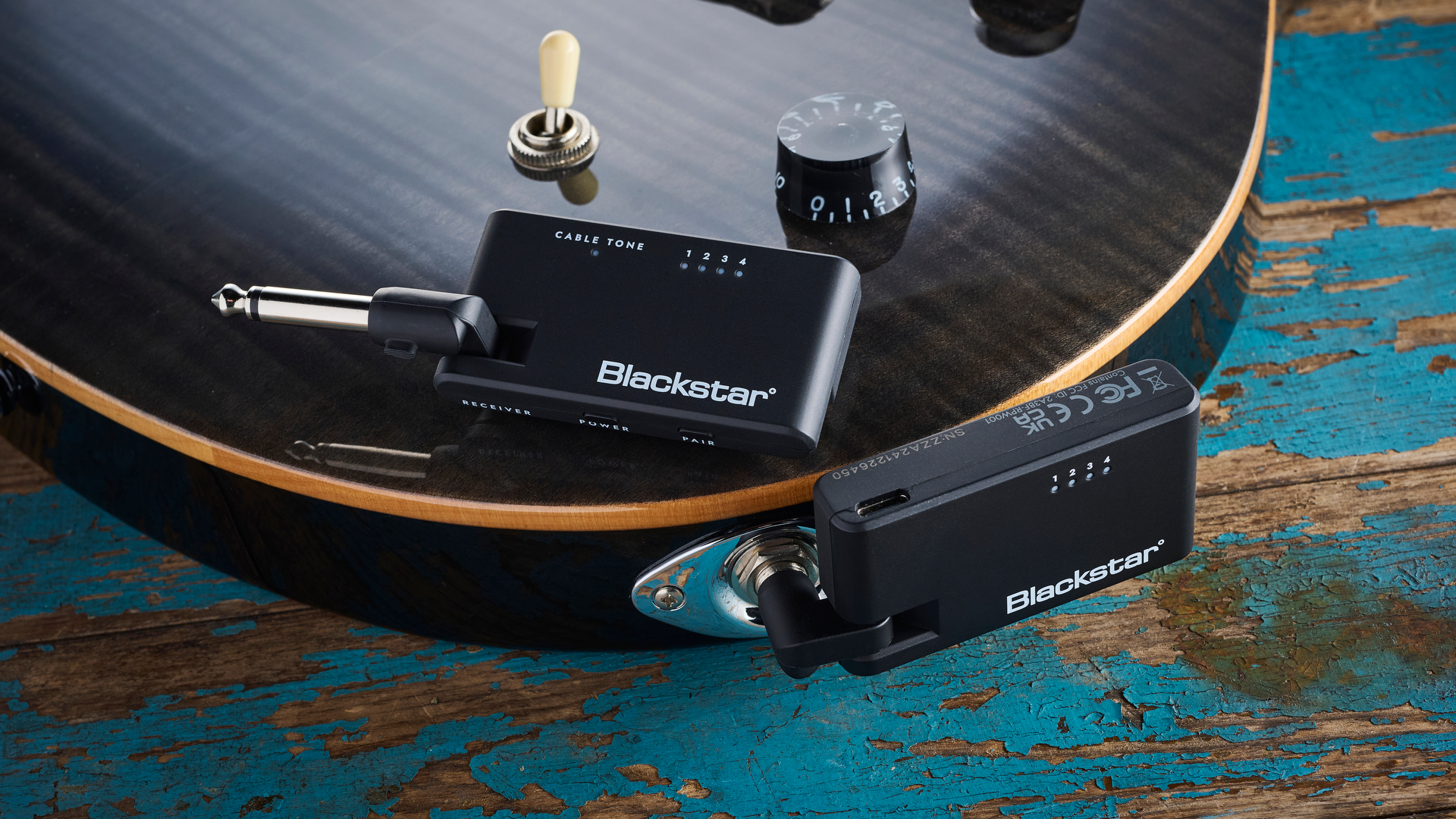Guitar World Verdict
If you like what a POG does, you’ll love this! Taking things to a new level, this is sonic wizardry at its finest for those looking to get creative with sound.
Pros
- +
A comprehensive reimagining of the POG.
- +
Solid tracking.
- +
Easy hands-on operation.
- +
Presets.
- +
Red LEDs.
- +
Added 5th voice.
- +
External control options; direct output.
Cons
- -
EHX pedals are generally quite affordable, but you’ll need deep pockets for this one.
You can trust Guitar World
What is it?
Electro-Harmonix seemed to hit the ground running in 2005 when it released the first version of its Polyphonic Octave Generator, which offered several octave voices with solid tracking.
Since then, there have been plenty of different POG versions and several related spin-offs including two HOG pedals and the ‘9’ series that emulate the sounds of various keyboard instruments. And now we have the ultimate expression (to date) of the format in the POG3.
The new pedal has a much more upmarket feel than its predecessor, sporting three footswiches and red LEDs on each slider. But it offers more than just a facelift as there’s an extra slider to add in a +5th voice, 100 onboard presets, and an enhanced effects section with individual dry effect routing and expression control over almost every parameter.
The POG3 generates extra voices one and two octaves up, and one and two voices down (plus that new 5th voice). Each has its own dedicated slider so they can be blended with or without the dry sound, which also has its own (Dry) slider.
Usability and sounds
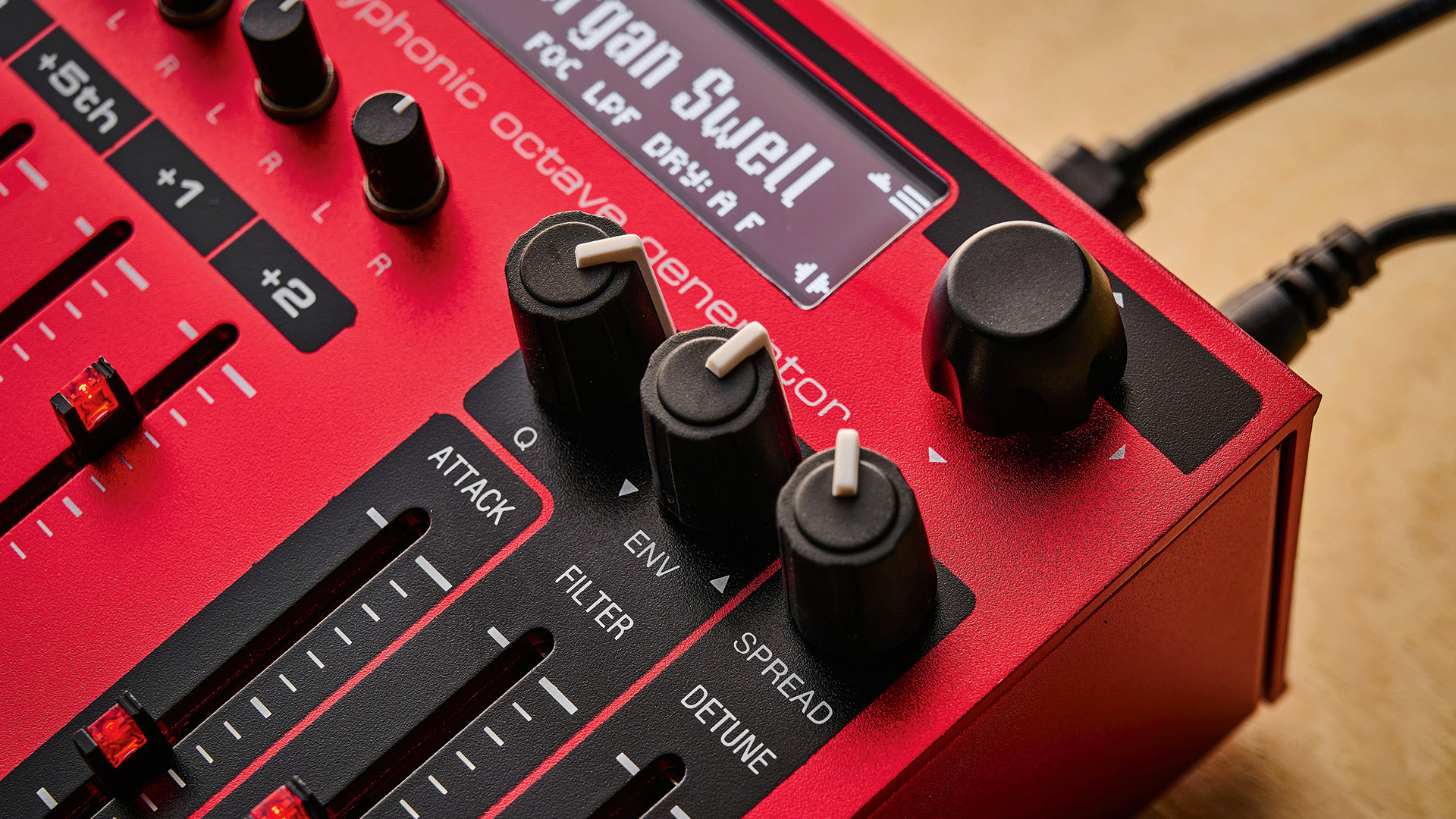
A variety of treatments can be applied to the generated voices – and optionally to the dry sound – via three more sliders and three knobs. The treatments are to set the Attack time for a fade-in, to adjust a Filter for tonal options or synth flavours, and to apply Detune for a spacious chorus/doubling effect. You also get individual pan knobs for each voice slider if you use the stereo outputs.
There’s great tracking here and instant access to the practical use of straight octaves, such as getting bass sounds from a standard guitar and faux 12-string (or even 18-string!) sounds. Beyond those are realistic organ sounds and plenty more that’s traditionally the province of a keyboard player.
10 factory presets will get you started, but operation is straightforward, making it easy to conjure up ethereal and otherworldly sounds that are crying out to be fed into ambient reverb/delay.
For real-time performance options, you can add an expression pedal for Whammy-style pitch bends, and control of the filter for wah, synth sweeps and more.
Verdict
If you like what a POG does, you’ll love this! Taking things to a new level, this is sonic wizardry at its finest for those looking to get creative with sound.
Specs
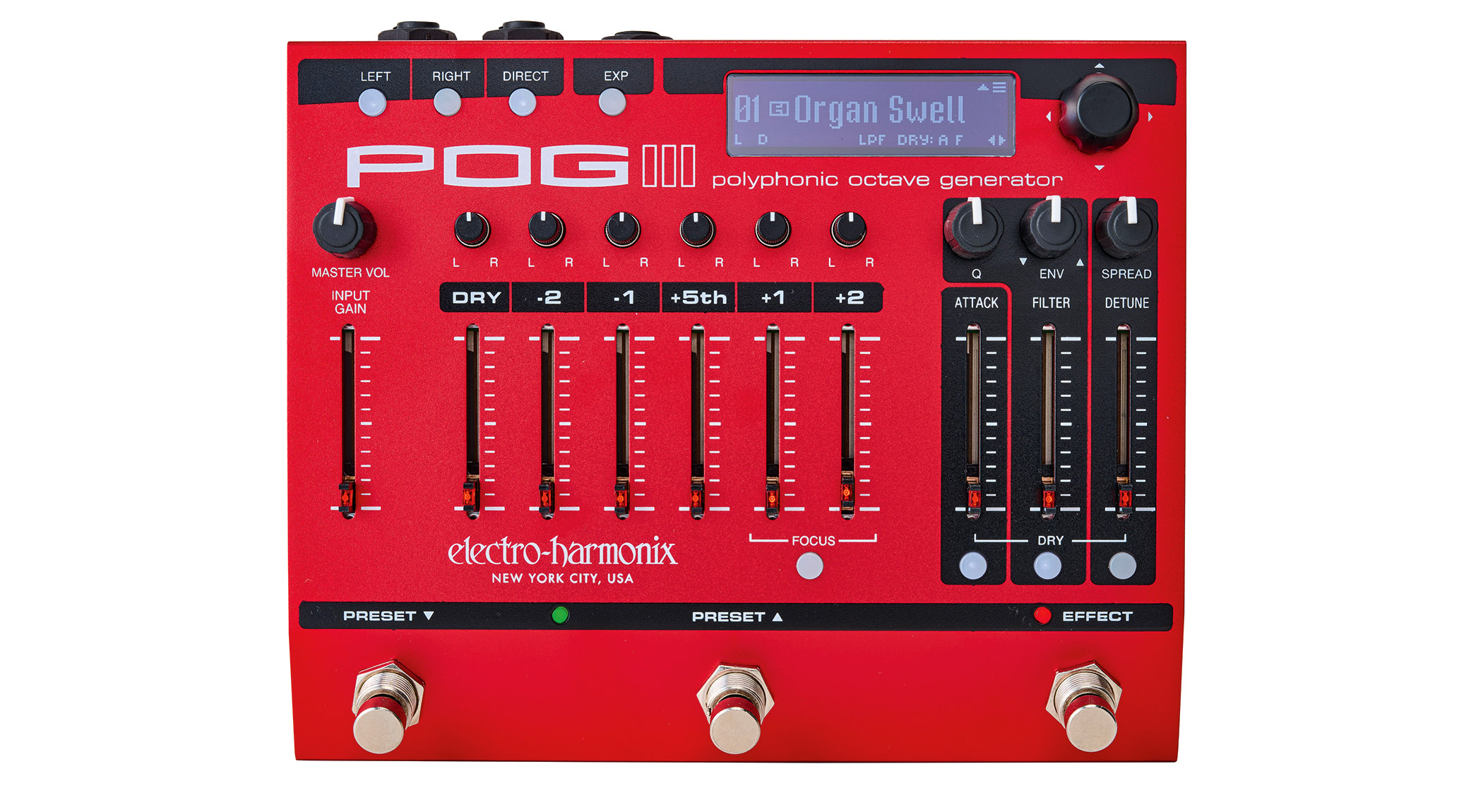
Price: $645/£599
Origin: USA
Type: Polyphonic Octave Generator pedal
Features: Buffered bypass, 100 presets, mono or stereo output, 6 separate voices, 6 expression modes, direct output for input signal, comprehensive MIDI capability
Controls: Navcoder, Master Volume, Input Gain, 6x Pan knobs, Dry, -2, -1, +5th, +1, +2, Attack, Filter, Detune, Q, Env, Spread,
3x Dry buttons, Left button, Right button, Direct button, Exp button, Focus button, Preset down footswitch, Preset up footswitch, Bypass footswitch
Connections: Standard input, standard outputs (L & R), standard Direct Out, EXP/CV In, MIDI In, MIDI Out, USB
Power: 9V DC adaptor, (supplied) 300mA
Dimensions: 180 (w) x 148 (d) x 67mm (h)
Contact: Electro-Harmonix
Hands-on videos
Electro-Harmonix

Pete Thorn
Trevor Curwen has played guitar for several decades – he's also mimed it on the UK's Top of the Pops. Much of his working life, though, has been spent behind the mixing desk, during which time he has built up a solid collection of the guitars, amps and pedals needed to cover just about any studio session. He writes pedal reviews for Guitarist and has contributed to Total Guitar, MusicRadar and Future Music among others.
“A virtuoso beyond virtuosos”: Matteo Mancuso has become one of the hottest guitar talents on the planet – now he’s finally announced his first headline US tour
“His songs are timeless, you can’t tell if they were written in the 1400s or now”: Michael Hurley, guitarist and singer/songwriter known as the ‘Godfather of freak folk,’ dies at 83
“Finely tuned instruments with effortless playability and one of the best vibratos there is”: PRS Standard 24 Satin and S2 Standard 24 Satin review
